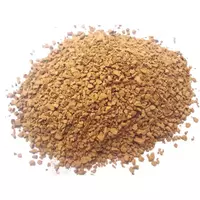A cup of decaf

Such a drink as coffee has long become a favorite on all continents of the planet Earth. The official history of coffee began in the 14th century, when coffee trees were brought from Ethiopia to the Arabian Peninsula. Already at the beginning of the 16th century, European traders began to buy large volumes of coffee beans from Arab ports. There are about 90 species of coffee trees in nature.
However, only two main types of plants are used for the production of the drink - arabica, as well as robusta. As a result of scientific research, it was found that the chemical composition of coffee contains about 1200 different compounds, 800 of which are responsible only for the original aroma of the drink. Coffee has special invigorating properties, which are due to the content of significant amounts of caffeine in the drink.
At its core, caffeine is a crystalline alkaloid found in a coffee or tea tree, as well as guarana and some other plants. Caffeine is actively used in the pharmacological industry in the production of medicines that help with headaches, as well as migraines. It is worth noting that caffeine in large quantities is addictive, and also negatively affects the state of human health.
Decaffeinated coffee composition
That is why decaffeinated coffee is currently especially popular and in demand. Coffee beans undergo a decofeination process. As a result, the chemical composition of coffee is freed from caffeine. In the composition of decaffeinated coffee, there is still a certain amount of a chemical compound harmful in large quantities to the human body. However, it is more correct to say that decaffeinated coffee contains a meager amount of substance.
The benefits of decaffeinated coffee
There are several main methods for decofeining coffee, which differ in the method as well as the chemicals used in the process of processing coffee beans. The main benefit of decaffeinated coffee is the low content of caffeine in the chemical composition of the drink. In addition, decaffeinated coffee benefits the same as a regular drink.
True, true coffee connoisseurs consider a decaffeinated product not invigorating enough. However, decaffeinated coffee will be useful to some groups of people, for example, pregnant. Decaffeinated coffee does not have a powerful tonic effect on the human body, unlike classical types of product.
The harms of decaffeinated coffee
However, in addition to the benefits, there is also the harm of decaffeinated coffee to human health, which lies in the chemical composition of the drink. It is worth noting that the harm of decaffeinated coffee, as in the case of ordinary types of drink, can occur with regular consumption of the drink in unlimited quantities. Since decaffeinated coffee contains a certain amount of caffeine, such a product is not recommended to be used in the children's food menu.
decaffeinated coffee 194.8 kCal
Energy value of decaffeinated coffee (Ratio of proteins, fats, carbohydrates - ju):
Proteins: 0.1 g (~ 0 kCal)
Fats: 0 g (~ 0 kCal)
Carbohydrates: 2.8 g (~ 11 kCal)
Energy ratio (bj | y): 0% | 0% | 6%
 Español
Español Français
Français Português
Português Русский
Русский 简体中文
简体中文 繁體中文
繁體中文 日本語
日本語 한국어
한국어 العربية
العربية Türkçe
Türkçe Қазақ
Қазақ Deutsch
Deutsch Italiano
Italiano Українська
Українська
